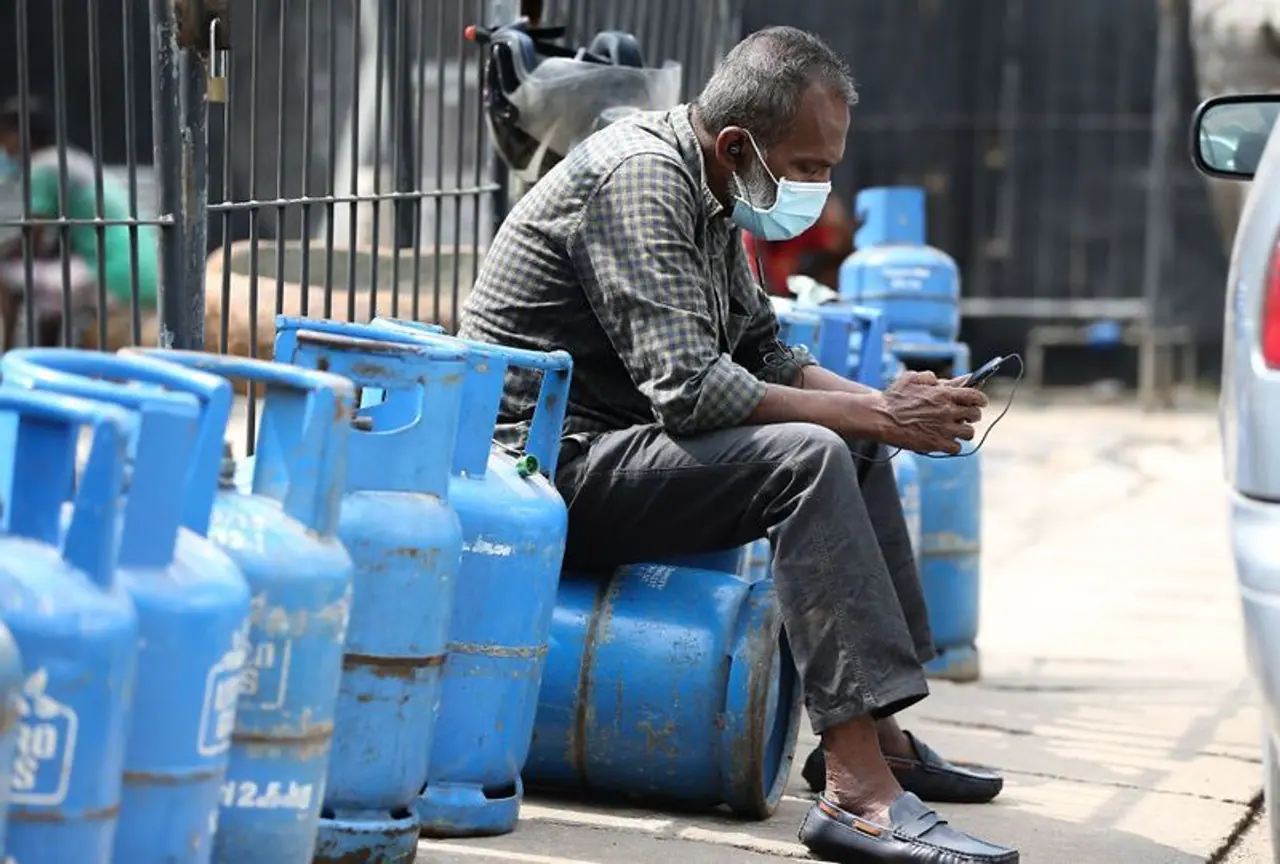Sri Lanka economic crisis deepens: Late-night protests, firing and curfew
Hundreds of demonstrators gathered outside Sri Lankan President Gotabaya Rajapaksa's mansion on Thursday to criticise the government's handling of the devastating economic crisis.

Hundreds of demonstrators gathered outside Sri Lankan President Gotabaya Rajapaksa's mansion on Thursday to criticise the government's handling of the devastating economic crisis.
Security personnel shot at the crowd to disperse it, although it was unclear if they used live rounds or rubber bullets. Protesters seeking Rajapaksa's resignation were also met with tear gas and water cannons. Protesters also set fire to an army truck and a police car parked outside Rajapaksa's residence in Colombo's Mirihana residential district.
Also Read | Sri Lanka economic crisis: Long queue at pumps, no electricity, more

More than 5,000 protesters marched in the Sri Lankan capital near the President's residence, demanding that he resign, and battled with police. To subdue the protests, a paramilitary police squad known as a Special Task Force was brought in.
According to many media sources, bricks were thrown at police officers and military. In reaction to the protest, security surrounding Rajapaksa's mansion has been increased, and army soldiers have been deployed. "Police curfew enforced with immediate effect throughout Colombo North, Colombo South, Colombo Central, and Nugegoda Police Divisions," declared the Inspector General of Police, according to the Daily Mirror.
Sri Lanka is now experiencing a foreign exchange deficit, which has resulted in a scarcity of gasoline, power, and gas. The island country has requested economic support from friendly countries.
On Thursday, fuel was no longer available, causing a 13-hour power outage for the country's 22 million residents and keeping transportation off the roads. The blackout had a knock-on impact on state-run hospitals, which had already halted surgeries owing to a scarcity of medications.
Electricity restriction harmed mobile phone base stations, lowering call quality. The Colombo Stock Exchange had to cut trading time in half to two hours, and offices urged non-essential employees to stay at home.
Street lights were switched off to save power, according to Reuters, citing a ministry.
Also Read | Sri Lanka plunges into deep fuel crisis, power cut extended to 10-hour daily
The seriousness of the issue may be gauged by the fact that numerous government-run hospitals have been forced to stop performing surgery due to a lack of crucial life-saving drugs. While inflation reached 17.5% in February of this year, the country's Central Bank expects it to grow much more in the near future.
Meanwhile, Rajapaksa has defended his administration, claiming that the currency problem was not his responsibility and that the economic slowdown was mostly caused by the COVID-19 outbreak.
Also Read | Explained: Sri Lanka's 'bad economics' an opportunity for India
Check the Breaking News Today and Latest News from across India and around the world. Stay updated with the latest World News and global developments from politics to economy and current affairs. Get in-depth coverage of China News, Europe News, Pakistan News, and South Asia News, along with top headlines from the UK and US. Follow expert analysis, international trends, and breaking updates from around the globe. Download the Asianet News Official App from the Android Play Store and iPhone App Store for accurate and timely news updates anytime, anywhere.